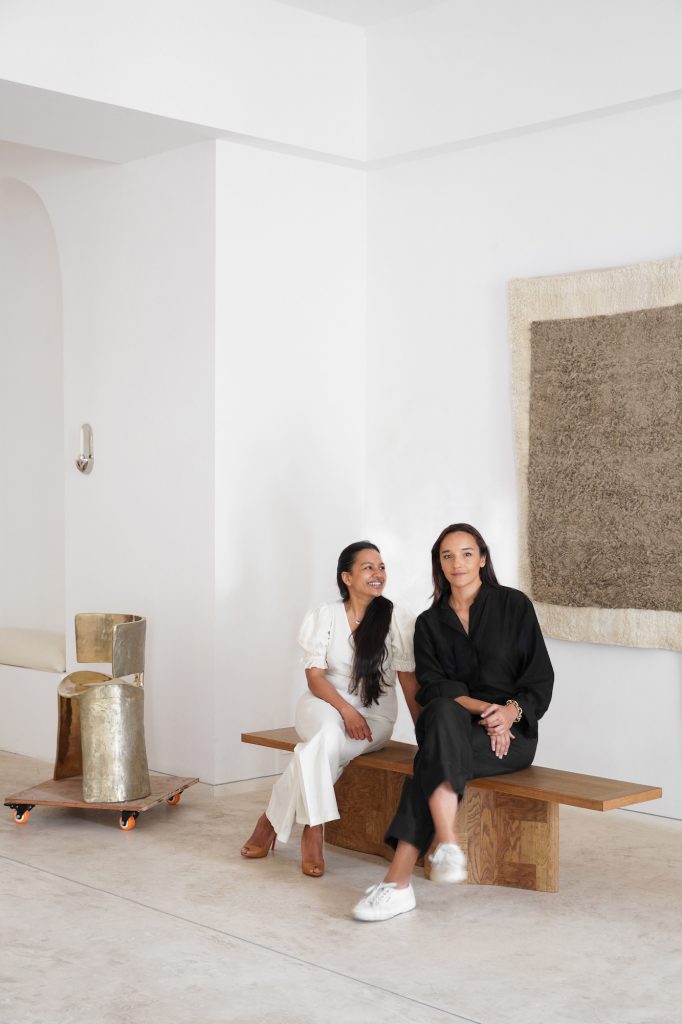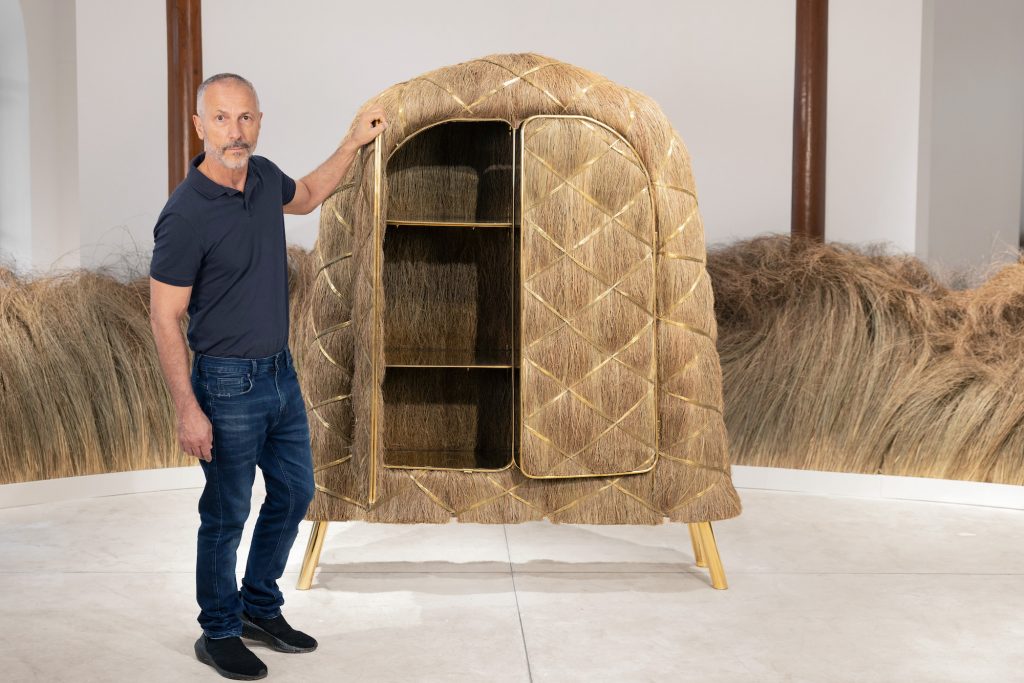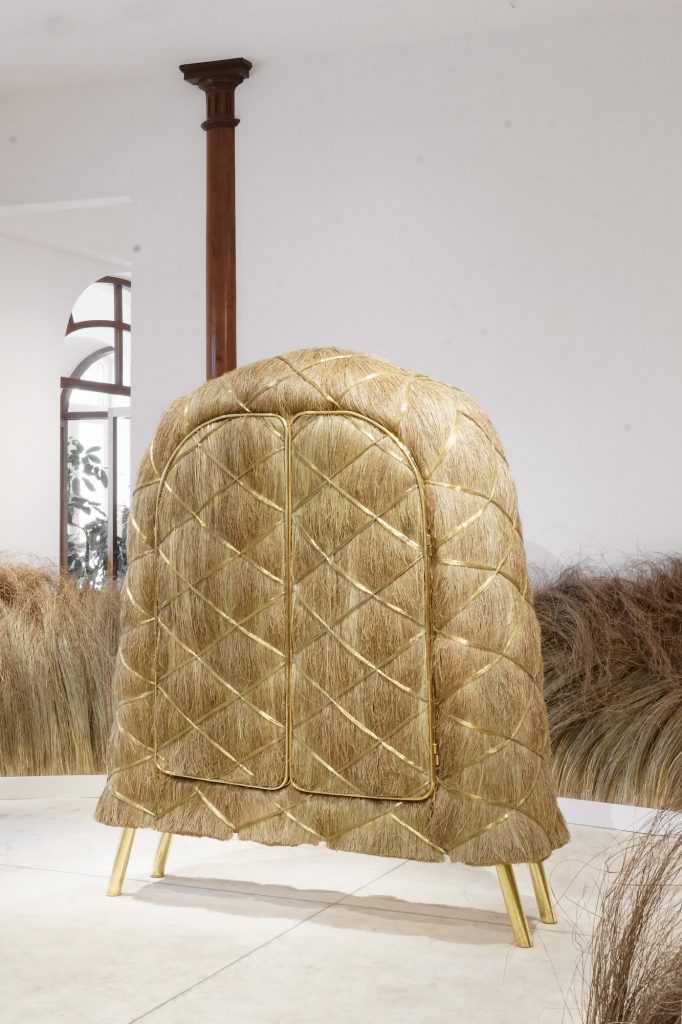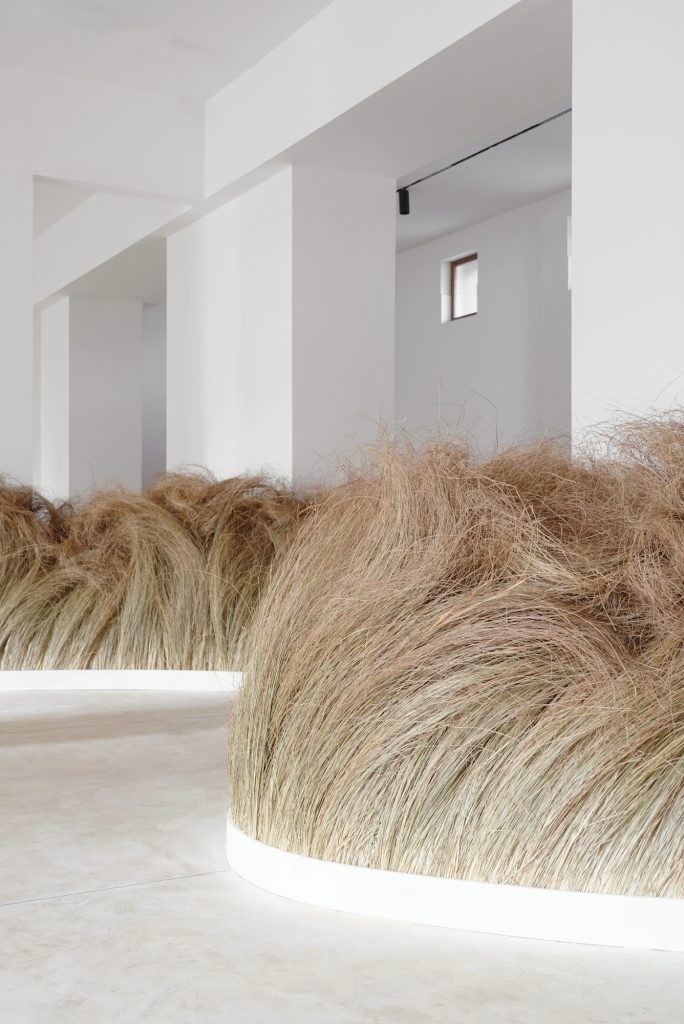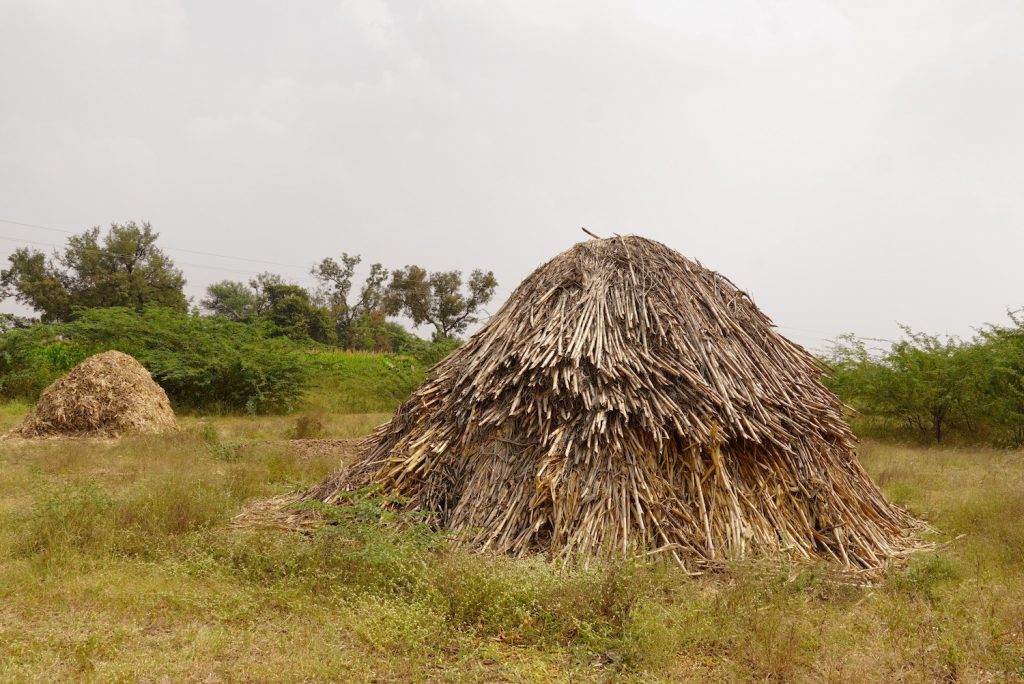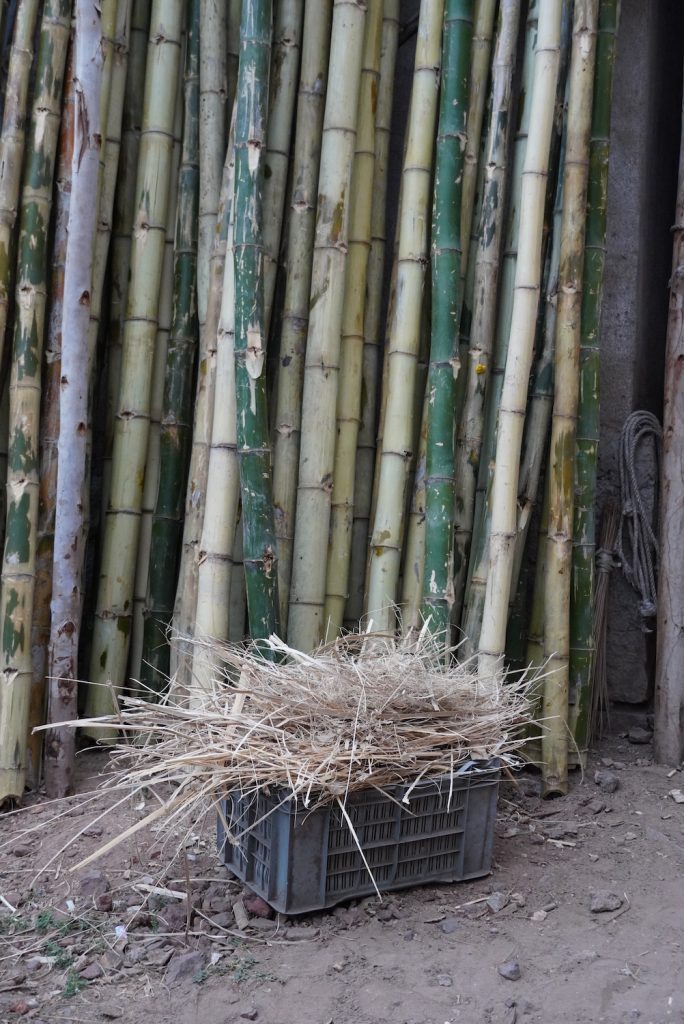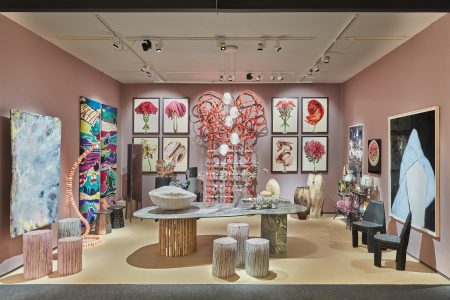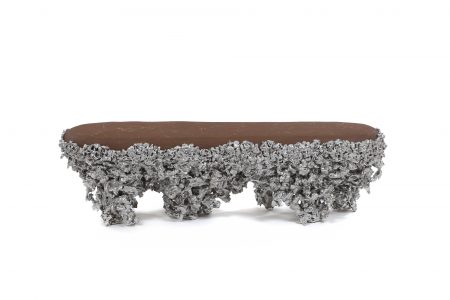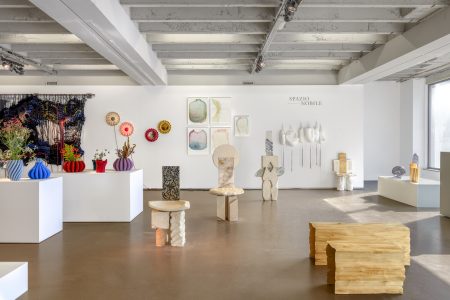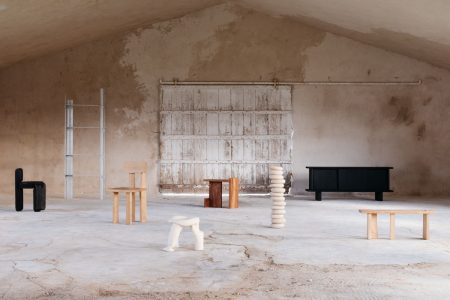Æquō: A Celebration of India’s Craft Heritage
TLmag spoke with Florence Louisy & Tarini Jindal Handa of Æquō, a collectible design gallery that connects designers with Indian craftspeople to create new work, as well as promote and preserve the extensive and incredible craftsmanship that is found throughout the country.
Founded by Tarinia Jindal Handa in 2022, and under the creative direction of Florence Louisy, Æquō has already, in its short time, become an important platform to showcase Indian craftsmanship and contemporary design. With a welcoming gallery space in Mumbai for exhibitions and events Æquō is establishing a new network of design and craft and showcasing the wealth of incredible craft traditions across India. They recently invited Humberto Campana to India to explore Indian craftsmanship and develop a new project. After travelling to several places and discovering new materials, he decided on making a large cabinet made from Sabai grass, a raw fibre native to India that is typically found in the eastern and north-eastern region of the country. Using brass work to add contrast and support, ATUXUA is a fascinating piece that has an almost animistic quality to it and shows the incredible potential of such a humble material. Campana writes, “The intricacy of the Sabai grass and the metalwork represents a parallel between the spirituality, rituals, and religious syncretism we can find both in India and Brazil.” The name ATUXUA, comes from indigenous Brazilian masks that are known for their intricate craftsmanship and symbolic significance. ATUXUA was first exhibited in Mumbai in late 2023 and it will be presented during the upcoming PAD Paris fair between April 3-7, 2024.
TLmag: How did the partnership between you develop?
Florence Louisy: Tarini and I met in Paris through mutual acquaintances, fuelled by common creative passions but coming from completely different backgrounds, which is always a strength in project creation. We were discussing the absence of a collectible design scene in India, and we spontaneously set ourselves the challenge of opening the first gallery dedicated to this cause, in Mumbai, Tarini’s place of residence. Her family holds a very important position as patrons of Indian art and craftsmanship. Her grandmother created the Kanoria Centre of Arts, the first artist’s residency in India, and her mother is the founder of India’s Art Magazine. Recently, they both launched a new artist residency near Hampi, entirely focused on craftsmanship, called Hampi Art Labs.
TLmag: Florence – were you familiar with Indian design and craftsmanship before stepping into this project? What got you excited about being a part of it?
F.L.: At that time and still today, I design collectible furniture. I have always been interested in the production process, meeting the artisans who work on my pieces, and being present during this process to draw inspiration from specific moments, finding unexpected aspects of a technique that ultimately become important details in the design. The artisanal process has always been integral to the forms I conceive. Naturally, being able to explore these same steps, but this time in India, in a country that was completely foreign to me, with unfamiliar crafts, and linking them with other designers, is an incredible opportunity not only to conceive but also to promote each technique to the fullest. When Tarini and I opened the gallery space with the first collection, “Raw”, we knew that we were also launching a gallery concept that carries a strong meaning for crafts. In this case, those of India.
TLmag: Talk about the importance of conversation and collaboration with Æquō and how the space is designed to encourage it?
F.L.: The gallery space was designed by the French architect Ivan Oddos, who, in the same concept that we bring to our collaborations, imagined the entire interior using local materials and enhanced them with style. Stainless steel, kota stone, lime, teak wood, everything was manufactured on-site and locally sourced. The gallery comprises a large showroom space but also a place dedicated to gatherings around a materials library and a large dining table, a kitchen, workshops… It’s a space that transforms according to its needs and is a little paradise nestled on the first floor of a typical old building in the historic Colaba neighbourhood.
TLmag: Have you invited other designers, besides Humberto Campana, to India to work on a site-specific piece or was this the first? Is there a plan to invite a designer each year to create a piece onsite?
F.L.: We recently hosted designer Frédéric Imbert, who spent 10 days in the Chhattisgarh region and developed an entire series of impressive furniture pieces on-site, which we are still working on. He collaborated with a workshop that we introduced him to, which masters one of the oldest Indian craftsmanship techniques, Dhokra, the equivalent of lost wax casting but with completely different materials. Each collaboration requires adaptability, both for us, the workshop, and the designer. A trip to India demands a lot of time and energy investment, but it’s worth it. Of course, our dream would be to host each of our designers on-site… Whenever possible, we include this essential phase in the projects. We started the gallery project during the lockdown period and began collaborating remotely with other creatives, which also excites us and has proven successful so far. It is also essential to respect each other’s creative space, and distance can sometimes be beneficial in this regard.
TLmag: Talk about the importance of materials in the gallery. Are you interested in highlighting certain materials from India?
F.L.: Raw materials and local techniques are at the heart of the æquō project and concept. Our goal is to showcase and elevate Indian techniques to the level of the international collectible design scene. For Tarini and me, there is no greater pride than presenting, at events like Design Miami or PAD, pieces created with techniques such as Bidri, inlaid with pure silver, or furniture entirely carved from solid teak with particular assembly techniques… Exporting and valorising these skills to everyone’s eyes, translated into contemporary and powerful designs, is the driving force behind our project.
TLmag: You will be exhibiting at PAD Paris this year?
F.L.: We participated in PAD last year and won the award for the best contemporary piece with a daybed designed by Valeriane Lazard and made from solid teak and woven rice straw by Woodlabs workshop in Bangalore. This year, we’re coming back with a completely different scenography and new collaborations such as Estudio Campana, Linde Freya Tangelder, ceramicist Kristin Yezza, and the designer duo Garcé & Dimofski. We are very proud of these new pieces.
TLmag: Tell us about the collaboration with Humberto Campana.
F.L.: The collaboration with Humberto began before his trip to India. At that time, travel was still difficult, so we sent him our “bible,” a book that catalogues all Indian craftsmanship techniques. More than 400 references… Humberto and I knew each other well, and a climate of trust allowed this piece to emerge gradually during our meetings, drawing inspiration from our interactions. It’s a Campana signature to use natural fibres as a mantle to dress walls or furniture. This is what happened with Sabai grass, typical of West Bengal. Through this piece, Humberto wanted to recreate a life scene present in India during the harvest of this grass. He then came to India for the launch of Atuxua, and we subsequently explored new workshops and craftsmanship to feed future pieces in the collection. The Atuxua shelf is a limited edition of 3 pieces. We are showing it for the first time at PAD in Paris in April. For us, being able to showcase such a piece and such a name alongside emerging designers, as well as very noble and sought-after techniques alongside others more common but reinvented, is exactly the definition of “æquō” = “to make equal” and above all, to present the exceptional inventiveness and dexterity of Indian artisans.
https://aequo.in/
@_aequo_
www.estudiocampana.com
@estudiocampana
